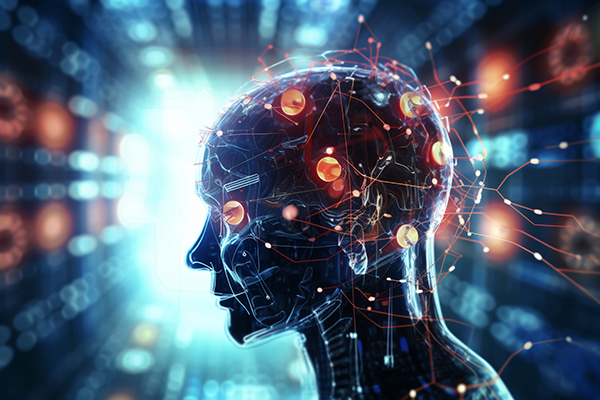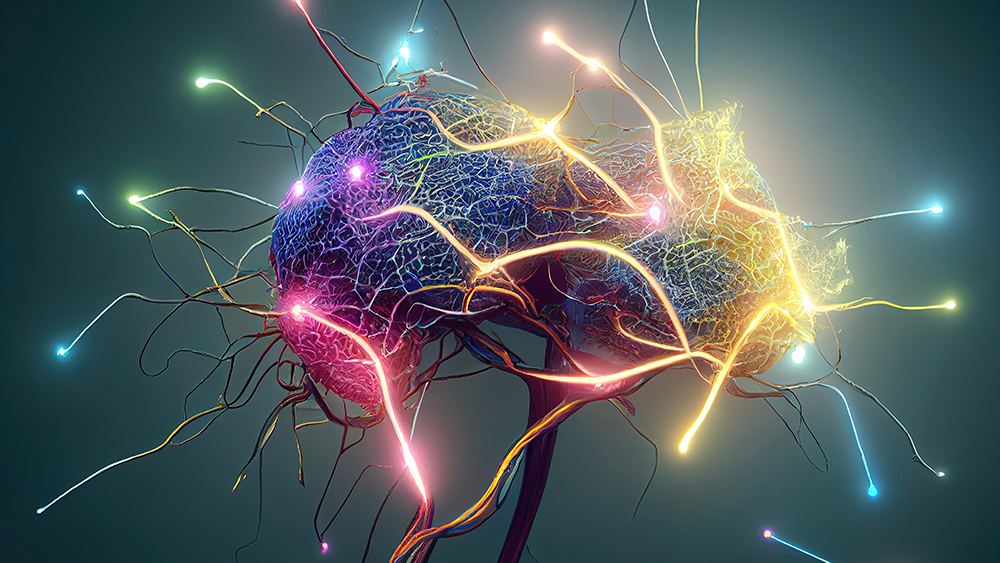Mind over matter: Mind-controlled “smart brain” devices may become common by 2040, says expert
12/18/2023 / By Zoey Sky

Advances in “smart brain” technology could allow more people to operate smart devices using only their minds. However, experts warn that the technology may be linked to various risks for users.
Mohit Shivdasani, a biomedical engineering specialist at the University of New South Wales in Australia, predicts that mind-controlled devices with smart brain technology may become common by 2040.
A wearable or implanted gadget, also called a “smart brain” or Brain-Machine Interface, connects the human brain directly to smart devices such as computers, smartphones and robotic limbs. Technology like a smart brain could blur the line between humans and machines by enabling people to send texts, browse the internet and control smart home appliances like smart thermostats using only their thoughts.
Shivdasani believes scientists are “very close” to mind-controlled devices becoming commonplace instead of something out of a sci-fi movie.
“We’re not far off from seeing someone walking around with a brain-machine interface outside of a lab,” said Shivdasani, who noted that experts are now starting to integrate links between commonplace devices like computers and smartphones with the brain.
After a successful test on two crippled individuals, Shivdasani suggested that those with disabilities would benefit from these mind-controlled devices of the future.
“One particular [paralyzed] person was able to control a robotic arm just by thinking about it, while another person was able to move a cursor on a computer screen and read his email,” said Shivdasani.
He added that the technology functions by restoring the flow of messages from the user’s brain to their limbs.
While there are cases where the brain can send signals, those signals can’t reach the limbs for the person to be able to walk for themselves. Instead, a brain-machine interface can help “read those thoughts and convert those thoughts to an action.”
Shivdasani is also developing smart brain bionic eyes for the blind, along with devices for chronic pain and inflammatory bowel disease sufferers. He believes that the broad adoption of smart brains can offer benefits for those facing various challenges that impair their quality of life.
Other experts warn about the potential risks of mind-control tech
Elon Musk’s Neuralink has released a statement announcing that it will start human trials of brain implants for paralysis patients. However, despite the company’s optimism, many experts are wary of these human trials.
Christina Maher, a biological researcher, compared smart brains to someone “speaking” for someone else, which she warned raises “intrusive ethical issues.” (Related: Elon Musk’s Neuralink to implant its experimental brain chips on at least 11 volunteers in 2024.)
Maher explained that a brain-computer interface (BCI) may generate the output “I’m good” when the user intended it to say “I’m great.” While the ideas are similar, they are not completely the same.
A non-disabled person can easily physically correct the mistake, but if it’s someone who can only communicate through BCIs, there is a risk of being misinterpreted. Maher also warned that people could be powerless to decide which brain impulses to send to the smart brain.
She explained that brain data are arguably the most private data because of what can be inferred regarding a person’s identity and mental state. However, private BCI companies may not need to inform users about what data are used to train algorithms. She warned that these moral dilemmas should make the public consider what’s best for society and individuals.
Maher also expressed worries about people in the military who could be equipped with neuro-enhancing devices because such devices could compromise their individual identity and privacy. She also brought up the problem about which legislation should capture neuro rights: Should it be data protection law, health law, consumer law or criminal law?
Scientist Andrew Jackson, on the other hand, claims that society currently has nothing to worry about. He explained that when discussing enhancement, such as the idea that someone would be able to write new memories into their brain or upload their memories onto a hard drive or into the cloud, experts “know a lot less about how those brain systems work.”
Jackson also explained that compared to equipment, the human body is still far more powerful. He added that the benefits of utilizing a brain-machine interface now can’t be compared to “the sophistication of a normally functioning nervous system.”
Visit FutureTech.news for more stories like this.
Watch the video below to learn more about Neuralink’s plans for its human trials.
This video is from the In4mation channel on Brighteon.com.
More related stories:
Brain CONTROL: Musk’s neurotechnology company Neuralink looking for brain implant trial volunteers.
Sources include:
Submit a correction >>
Tagged Under:
biotechnology, brain chips, brain health, brain implants, Brain-Machine Interface, computing, dangerous, future science, future tech, Glitch, health science, insanity, inventions, mind control, Neuralink, neurotechnology, research, science deception, science fraud, smart brain tech, transhumanism
This article may contain statements that reflect the opinion of the author
RECENT NEWS & ARTICLES
COPYRIGHT © 2018 MINDCONTROL.NEWS
All content posted on this site is protected under Free Speech. MindControl.news is not responsible for content written by contributing authors. The information on this site is provided for educational and entertainment purposes only. It is not intended as a substitute for professional advice of any kind. MindControl.news assumes no responsibility for the use or misuse of this material. All trademarks, registered trademarks and service marks mentioned on this site are the property of their respective owners.




















